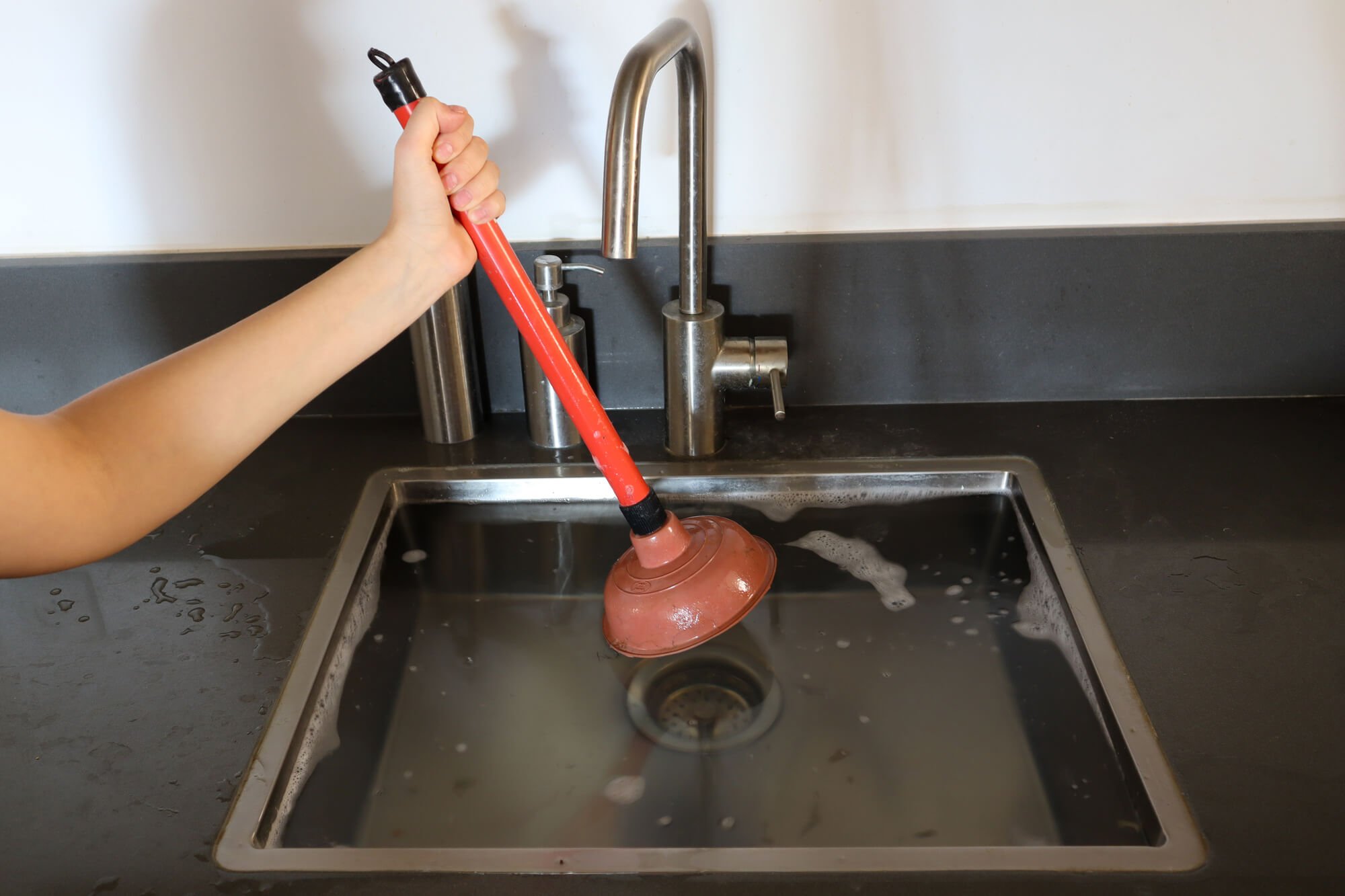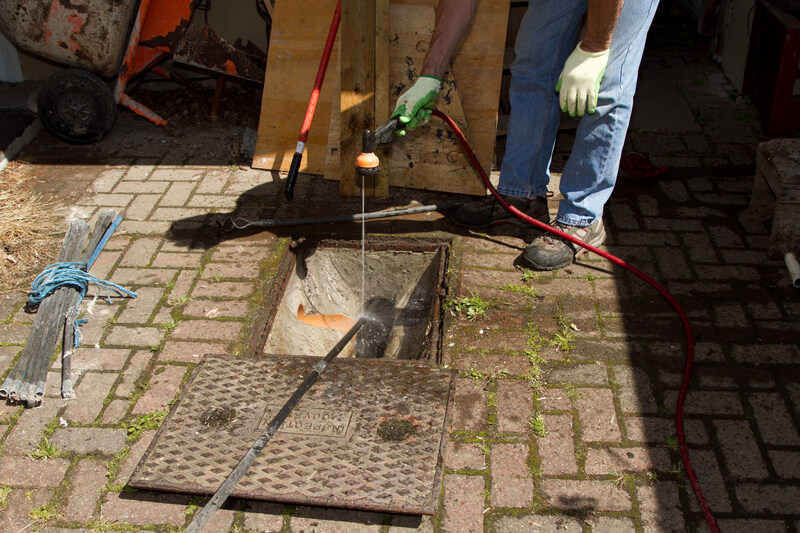Pointers for Dealing with a Blocked Drain Before Contacting Plumbing Professionals
Pointers for Dealing with a Blocked Drain Before Contacting Plumbing Professionals
Blog Article
We've uncovered this article about What I learned from trying to deal with a clogged drain below on the web and think it made sense to share it with you here.

Introduction
Taking care of a blocked drainpipe can be an aggravating experience, interfering with daily activities and possibly triggering damages to your property. Nevertheless, before reaching out to pipes professionals, there are actions you can take to resolve the issue yourself. In this overview, we'll discover DIY options and preventive measures to tackle an obstructed drainpipe properly.
Determining the Problem
The primary step in addressing a blocked drainpipe is identifying the indications. Slow-moving drainage, gurgling noises, foul odors originating from drains, or water backing up prevail indications of a blocked drain. Recognizing these indicators early can help stop better complications.
Selecting the Right Plumbing Service
When choosing a plumbing solution, take into consideration aspects such as experience, licensing, and client reviews. Select a trustworthy plumbing professional with a performance history of top quality workmanship and clear prices practices.
Cost Factors to consider
The expense of expert drain cleaning services can vary depending on the severity of the clog and the plumbing professional's prices. Request quotes from numerous suppliers and inquire about any added fees to make sure transparency and stay clear of surprises.
Safety and security Precautions
When trying DIY drain cleansing, prioritize safety and security. Wear protective handwear covers and eyewear to prevent contact with harmful chemicals or germs. Never ever mix different drainpipe cleansing items, as this can produce dangerous fumes.
Instance Studies
Real-life instances illustrate the effectiveness of DIY options and the relevance of prompt specialist intervention in settling drain blockages.
Usual Reasons For Blocked Drains
Comprehending the factors that contribute to drain pipes clogs is necessary for efficient resolution. Common offenders include hair, soap residue, grease, food particles, and international objects like hygienic products or paper towels. Tree origins getting into underground pipes can additionally trigger significant clogs.
DIY Solutions
For small obstructions, several do it yourself solutions can be efficient. Pouring boiling water down the drainpipe can help liquify grease and debris. Sodium bicarbonate and vinegar or a mix of salt and cooking soda can function as all-natural cleaners. Utilizing a bettor or pipes snake to remove blockages is another option.
Tools and Tools
Having the right devices on hand can make DIY drain cleaning up a lot more reliable. A bettor is a functional device for clearing blockages in sinks, toilets, and showers. A plumbing snake or auger can get to much deeper obstructions, while drainpipe cleaning chemicals can be used very carefully for stubborn obstructions.
Preventive Measures
To avoid future obstructions, adopting preventive measures is crucial. Mount drain guards or filters to catch hair and particles prior to they go into the pipes. Consistently flush drains pipes with hot water to liquify grease accumulation, and avoid disposing of grease or solid waste down the tubes.
When to Call a Professional
While do it yourself solutions can settle minor obstructions, particular indications show the need for specialist assistance. Relentless blockages, foul odors in spite of cleansing efforts, or multiple drains pipes supporting simultaneously are red flags that call for experienced intervention.
Conclusion
By complying with the ideas laid out in this overview, you can effectively tackle blocked drains and prevent future plumbing concerns. Whether opting for do it yourself remedies or looking for expert help, timely action is key to maintaining a healthy plumbing system and preserving the stability of your home.
How to Clear a Clogged Drain Yourself (And When to Call In the Professionals)
What Can Clog a Drain
Dirt Skin flakes Hair Grease Soap scum Food Offset pipes Tree roots Small objects Mineral buildup DIY Tricks to Unclog a Drain
You can fix this! Once you have identified the source of the clog (or have a vague idea), you can try one or a combination of these fixes in order to clear your plumbing.
Wire Hanger or Snake
Untangle and clear out hair from a drainpipe with a homemade snake. Use a straightened-out wire hanger with a 90-degree angle hook to locate the clog and drag out any unwanted material.
Remember not to push the clog further down to where the wire hanger cannot reach! If you need to follow up with a plunger, give it a try. Your efforts might be more successful after it’s been wire-snaked.
If you want to get fancy and don’t have a wire hanger to spare, head to the store and pick up a hand-operated drain snake. You can get one for $10-$30. It may save you the hassle, and provide additional length to reach deep into the clogged pipe.
Plunger
A cup plunger has a suction cup attached to a wooden handle. The rubber creates a seal around the drain, and increases the pressure force of the plunger.
Plunge for 30-second increments to loosen the clog. This may need to be repeated over the course of 15-20 minutes. Once plunged, run the water to flush the remaining material out of the drain.
Remember– never use a plunger if you have used a chemical drain cleaner. These chemicals can splash up from the force of the plunger and cause serious injury or burns.
Boiling Water
Hot water can sometimes break up materials into a flushable amount. Dirt, grease, and soap buildup requires heat in order to unstick from surfaces.
Take your kitchen kettle and heat your water to a boil. Once it reaches a rolling boil, pour it directly down the drain into the blockage. Carefully follow with plunging, if necessary.
Don’t worry if this takes more than one try! It can often take multiple kettles and repeated plunging in order to clear a particularly stubborn clog.
Chemical Drain Cleaner
As a last resort, pick up a bottle of chemical drain cleaner. Drain-cleaning chemicals are potent, and not very good for the environment.
You may need to wear protective eyewear in gloves before handling your bottle of chemical drain cleaner. Follow the instructions printed on the bottle, and flush with water as soon as the instructions allow. Do not follow with plunging.
Baking Soda and Vinegar
As a safer alternative to chemical drain cleaner, baking soda and vinegar can create a chemical reaction that clears tough clogs.
Combine one cup of cleaning vinegar with one cup of boiling water, and set aside. Once you have done this, pour half a cup of baking soda down the drain. Give the baking thirty seconds to settle and cover a large portion of the problem drain.
Following the baking soda, pour down your vinegar and hot water solution. Once the vinegar and baking soda combine, the mixture will bubble and fix. Let this reaction fizzle in the drain for about an hour.
After an hour, follow with a kettle’s worth of hot water. The heat and liquid should flush out any remaining material.
When to Call a Plumber
If your DIY attempts haven’t cleared your clog drain, it’s time to call in a professional. It’s not worth losing access to your kitchen sink or high-traffic bathroom. A clog in a vital area can keep you from the things you’d rather be doing, and derail your routine.
Anytime a clog is causing water to spread is a time to call in a plumbing service. What starts out as a little bit of water can quickly grow into serious, expensive water damage.
Additionally, a serious clog can result in burst pipes or serious leaks. Make sure you know when to take it seriously!
https://myguysnow.com/how-to-clear-a-clogged-drain-yourself-and-when-to-call-in-the-professionals/

I was shown that editorial on Some easy tips to fix blocked drains from an associate on a different domain. So long as you liked our blog entry plz consider to share it. Thanks a lot for your time invested reading it.
Book Today Report this page